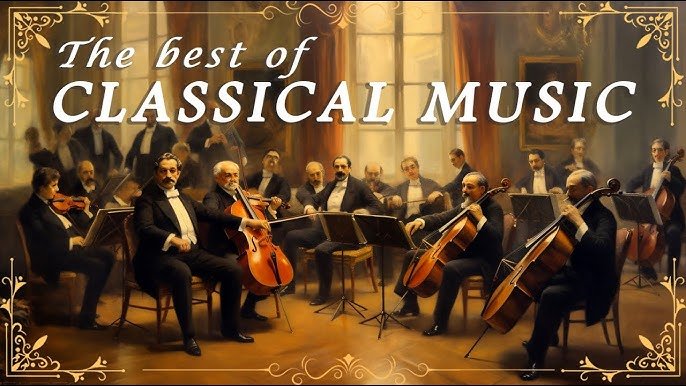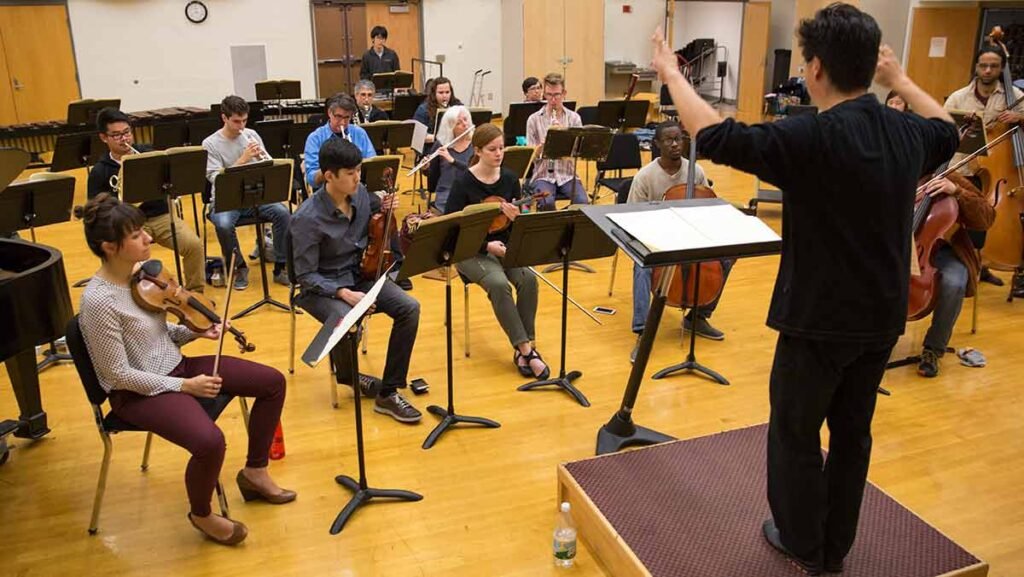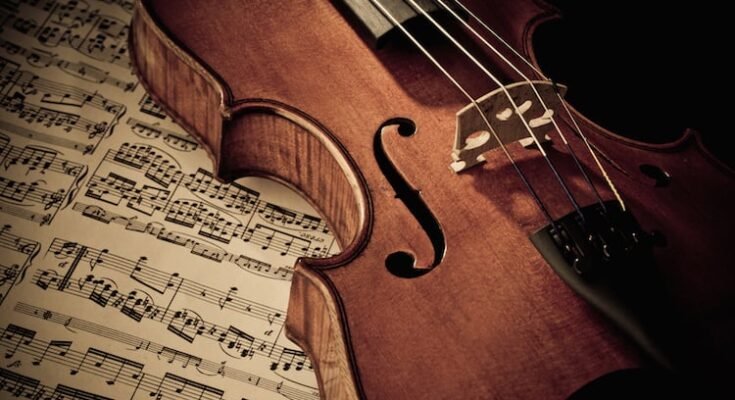Introduction
In an era dominated by fast-paced pop, EDM beats, and viral TikTok songs, it’s easy to assume that classical music has lost its relevance. However, classical music remains an essential pillar of cultural, emotional, and intellectual life. Its timeless beauty, emotional depth, and influence on modern music genres make it more significant today than ever before. In this article, we’ll explore why classical music still matters in today’s world, how it shapes society, and why it continues to inspire listeners of all ages.
The Timeless Nature of Classical Music

What Defines Classical Music?
Classical music refers to a broad tradition of music stretching from the 11th century to the present day, characterized by structured forms, technical precision, and expressive depth. The “Classical Period” specifically (c. 1750–1820) produced composers like Mozart, Beethoven, and Haydn, but the broader genre includes Baroque, Romantic, and even some contemporary orchestral works.
Emotional and Intellectual Depth
Classical compositions are built on layers of emotion, technical mastery, and philosophical depth. They invite listeners to not only enjoy melodies but to reflect, imagine, and engage intellectually.
Durability Across Centuries
Unlike many modern songs that may fade from memory within months, pieces by Bach, Chopin, and Tchaikovsky have remained influential for centuries, demonstrating their lasting power.
How Classical Music Shapes Modern Music

Foundational Techniques
Many modern music genres borrow heavily from classical structures such as sonatas, symphonies, counterpoints, and harmonic progressions.
Sampling and Influence
Hip-hop, film scores, and even pop music frequently sample or are inspired by classical motifs. Artists like Kanye West and The Beatles have incorporated classical elements into their work.
Film and Video Game Scores
Epic soundtracks for movies and video games often use orchestral scores rooted in classical music traditions to evoke emotion, tension, or grandeur.
The Cognitive Benefits of Listening to Classical Music
Enhanced Focus and Productivity
Studies suggest that listening to classical music can enhance concentration, making it a favorite background for studying or working.
Emotional Regulation
Classical music can calm the mind, lower blood pressure, and even reduce stress and anxiety levels.
Cognitive Development
Exposure to complex musical patterns in classical music is linked to improved brain development in children and sharper cognitive function in adults.
The “Mozart Effect”
Although somewhat controversial, the idea that listening to Mozart can temporarily boost IQ highlights classical music’s association with mental sharpness.
Classical Music as Cultural Education

Preservation of History and Heritage
Classical music captures the social, political, and artistic atmospheres of different periods, offering a rich historical record beyond textbooks.
Global Influence
Western classical music has been embraced and adapted worldwide, blending with local traditions to create unique styles like Indian fusion or Chinese symphonic works.
Building Cultural Literacy
Familiarity with classical music enhances understanding of literature, art, and historical references, enriching one’s overall education.
Why Younger Generations Still Embrace Classical Music
Rising Popularity in New Platforms
YouTube, Spotify, and Apple Music have introduced classical music to younger audiences through curated playlists and algorithmic suggestions.
Classical Music Crossover Projects
Artists like 2Cellos, Lindsey Stirling, and even orchestras collaborating with pop stars (e.g., Metallica with the San Francisco Symphony) are bringing classical techniques to broader audiences.
Stress Relief and Mental Wellness
In a world overloaded with digital noise, classical music provides a sanctuary of calm, making it appealing to millennials and Gen Z listeners seeking mental peace.
The Role of Classical Music in Education

Music Education Programs
Learning classical instruments like the piano, violin, or flute often forms the foundation of music education, teaching discipline, patience, and creativity.
Scholarships and Competitions
Many prestigious scholarships and international competitions are grounded in classical music excellence, opening doors for talented young musicians worldwide.
Building Critical Thinking
Analyzing classical compositions enhances analytical skills, critical thinking, and attention to detail.
Debunking Myths About Classical Music
Myth 1: Classical Music Is Boring
While it may not have a dance beat, classical music’s emotional range — from the thunderous to the delicate — offers endless excitement for those who listen attentively.
Myth 2: Classical Music Is Only for the Elite
Today, access to classical music is democratized through streaming services, public concerts, and music education initiatives, making it available to everyone.
Myth 3: Classical Music Doesn’t Fit Modern Life
On the contrary, classical music is used in workouts, meditation sessions, movies, and even modern advertisements, blending seamlessly with today’s lifestyle.
How to Start Enjoying Classical Music
Start with Accessible Composers
Begin with popular, emotionally gripping composers like Beethoven, Vivaldi, or Tchaikovsky.
Use Curated Playlists
Spotify and YouTube offer beginner-friendly playlists like “Classical Essentials” or “Relaxing Classical Music.”
Attend Live Performances
Experiencing a symphony orchestra live can transform your perception and appreciation of classical music.
Explore Film and TV Soundtracks
Many iconic soundtracks (e.g., Star Wars, Lord of the Rings) are heavily influenced by classical traditions and can serve as gateways into the genre.
Classical Music’s Future in a Digital World
Virtual Concerts and Streaming
Major orchestras now livestream performances, allowing global audiences to access world-class music from their homes.
AI and Classical Music
Artificial intelligence is being used to compose new works in classical styles, blending technology and tradition.
Revitalizing Classical Education
Efforts to modernize how classical music is taught — incorporating technology and cross-genre collaborations — ensure that it remains vibrant for future generations.
Also Read : What Every New Musician Needs To Know About The Music Business
Conclusion
Despite changing musical tastes and the rise of digital trends, classical music still matters deeply in today’s world. It offers not just artistic beauty but emotional healing, intellectual stimulation, and cultural enrichment. Classical music is a bridge between history and modern life, offering lessons in creativity, discipline, and human expression. By embracing classical music — whether by listening, learning, or supporting artists — we help preserve an art form that continues to shape our world in profound ways.
FAQs
Why is classical music still important today?
Classical music offers emotional depth, cultural heritage, intellectual stimulation, and forms the foundation for many modern music genres.
How does classical music affect the brain?
Listening to classical music can improve focus, reduce stress, enhance cognitive abilities, and promote emotional regulation.
Is classical music relevant to younger generations?
Yes, through streaming platforms, cross-genre collaborations, and mental wellness trends, classical music is finding a strong place among millennials and Gen Z.
Can classical music help with studying?
Yes, many studies suggest that listening to classical music improves concentration, memory retention, and mental performance while studying.
What’s the best way to start appreciating classical music?
Start with accessible composers like Beethoven or Vivaldi, use beginner playlists, and attend live performances to experience the music firsthand.
Are there modern uses for classical music?
Classical music is widely used in film scores, advertising, therapeutic programs, and even in fusion projects with pop and rock artists.
Is classical music only for the rich or elite?
No, today classical music is accessible to everyone through free concerts, public libraries, online platforms, and music education programs.
How has technology impacted classical music?
Technology has expanded access through streaming, virtual performances, and even AI-driven compositions, keeping classical music dynamic and relevant.
What’s the “Mozart Effect”?
It’s the theory that listening to Mozart’s music temporarily boosts IQ, although this effect remains debated among scientists.
How does classical music influence modern genres?
Classical music influences modern music through harmonic structures, melodic techniques, orchestration, and emotional storytelling, impacting everything from film scores to pop and rock.

